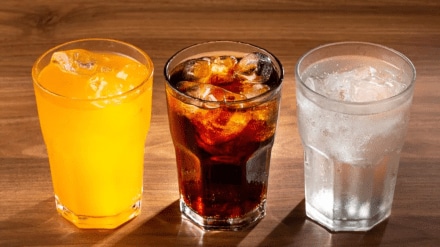New GST Rate on Beverages: The Goods and Services Tax (GST) Council, in its 56th meeting on 3 September, announced sweeping reforms to simplify the indirect tax system. While many essential goods have been moved into lower slabs, carbonated, caffeinated and energy drinks will now attract a hefty 40 per cent GST, up from the current 28 per cent.
Why the higher rate on beverages?
Finance Minister Nirmala Sitharaman explained that carbonated fruit drinks and similar beverages were earlier taxed at 28 per cent along with an additional compensation cess. With the decision to withdraw the cess, the tax rate has been increased to 40 per cent to maintain the effective burden at earlier levels.
While GST on caffeinated drinks are increased on 40 per cent, GST on coffee is reduced to 5 per cent from the present 18 per cent.
The government further clarified that this step ensures uniformity in taxation. By placing all non-alcoholic carbonated and caffeinated drinks under the same slab, issues of misclassification and disputes are expected to be reduced.
The 40 per cent slab has also been applied to ‘other non-alcoholic beverages’, in line with the Council’s broader principle of keeping similar products under the same rate category. This measure aims to prevent ambiguity in classification and provide clarity for both businesses and tax authorities.
The GST Council has clarified that job work services relating to the manufacture of alcoholic liquor for human consumption will not be eligible for the lower 5 per cent GST rate. Instead, such services will continue to attract 18 per cent GST with Input Tax Credit (ITC). This means that while several job work categories have been moved into the reduced 5 per cent slab under the latest rationalisation exercise, liquor manufacturing remains outside this relief.
Relief on drinking water
In contrast to the higher tax on cold drinks, drinking water supplied in 20-litre bottles will see a rate cut, from 12 per cent to 5 per cent. This is expected to ease household and institutional costs, providing relief to consumers.
Sin Tax
The GST Council also raised the rate on cigarettes to 40 per cent, keeping them firmly within the “sin goods” category. This is consistent with the government’s policy of discouraging consumption of products deemed harmful to health.
Industry effect
According to experts, the latest GST changes will have mixed effects on the FMCG sector. While companies such as Hindustan Unilever, Dabur, GCPL, Emami, Bikaji and dairy firms may benefit from lower rates on several essentials, beverage companies could feel the pinch.
Beverage companies are expected to be negatively impacted due to its reliance on aerated drinks, though analysts suggest this was anticipated. For ITC, the impact is seen as largely neutral.
These decisions are part of the larger GST rationalisation exercise, which reduces the four-tier system (5%, 12%, 18%, 28%) to just two slabs – 5 per cent and 18 per cent, with a special 40 per cent rate for sin and luxury goods.
The reforms, set to take effect from 22 September.
